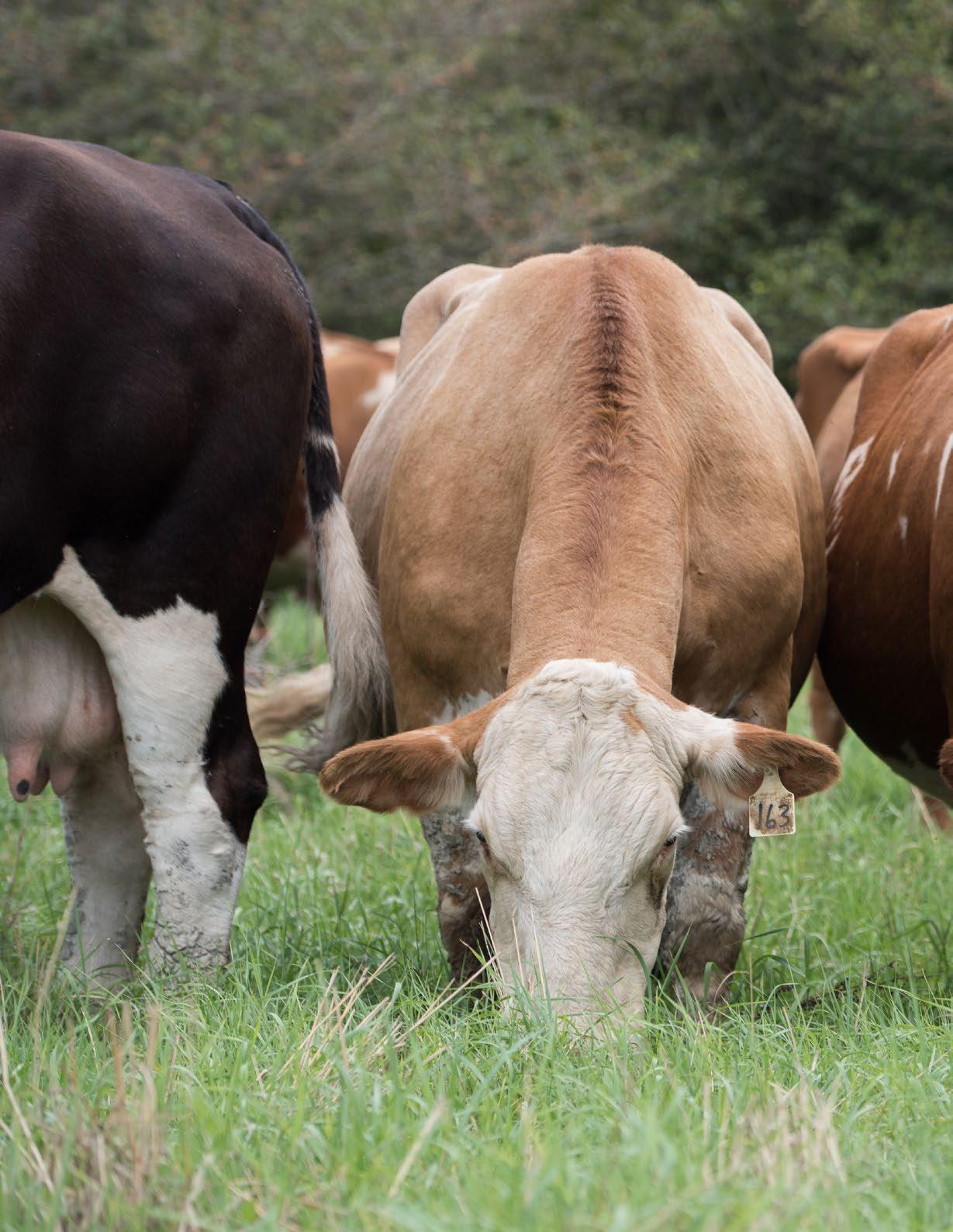
4 minute read
BFO GOVERNMENT RELATIONS REPORT
GOVERNMENT RELATIONS
The value of ongoing relationships with Members of Parliament (MPs) and Members of Provincial Parliament (MPPs) became more and more pronounced over the course of 2020, as face-to-face meetings became near impossible due to COVID-19. Despite the challenges, BFO directors and staff were able to keep Ontario’s beef industry issues and initiatives top-of-mind for many politicians and government staff. BFO also coordinated a grassroots lobbying effort to encourage other provinces to join us in reaching out to MPs and MPPs on shared interests and concerns.
The closure of Ryding-Regency heightened the importance of addressing processing capacity issues in eastern Canada and securing direct financial assistance for beef producers struggling from prolonged market losses. In June, BFO welcomed an announcement by federal and provincial ministers of $5 million for an Ontario cattle set-aside program to help manage potential backlogs in processing due to COVID-19.
BFO has also focused on sufficient funding for the Ontario Risk Management Program, enhancements to AgriStability, tweaks to the Canadian Agricultural Partnership to allow cost-share funding for manure storage, perimeter fencing and expansion activities, and development and expansion of the province’s processing facilities through infrastructure enhancements, access to labour, and market development.
BFO did not host its annual Queen’s Park Beef Barbecue this year due to COVID-19 restrictions, but directors were able to connect with MPPs and political and ministry staff virtually. Some directors were also able to attend on-farm meetings, adhering to social distancing protocols.
In July, the province shared some good news by announcing they would contribute an additional $50 million across the RMP sectors for the 2020 program year, fulfilling in part a campaign commitment by the Conservative Party.
In August, BFO President, Rob Lipsett, and BFO Executive Director, Richard Horne, presented to the Ontario Standing Committee on Finance and Economic Affairs, highlighting the need for enhancements to business risk management programming for Ontario’s beef farmers in addition to finding solutions to the lack of processing capacity in eastern Canada.
In late November, the governments of Canada and Ontario made a financial commitment of $4 million through the Canadian Agricultural Partnership for a new “Meat Processors Capacity Improvement Initiative”, providing up to $150,000 per project for improvements to product handling and processing equipment at Ontario’s meat processors and abattoirs. This was positive news for the sector, but we know more needs to be done to ensure our industry as a whole remains viable and competitive.
Leading up to the federal-provincialterritorial ministers of agriculture meeting in late November, President Rob Lipsett met (virtually) with Ontario’s Minister of Agriculture, Food and Rural Affairs Ernie Hardeman on a few occasions in preparation for the Minister’s participation in topics related to the beef industry. Also, BFO directors participated in two virtual federal lobby days with the Canadian Cattlemen’s Association (CCA). The first set of meetings was focused on the federal suite of business risk management programs and the second round of discussions focused on enhancements to AgriStability and the growing trade imbalance between Canada and the European Union and the United Kingdom. With the United Kingdom leaving the European Union, the Government of Canada has been pursuing a new free trade agreement. While an interim agreement has been struck, access to the United Kingdom will mirror what was previously available under the CETA agreement – an agreement that has placed the Canadian beef sector at a significant disadvantage to our European counterparts, largely as a result of unresolved technical barriers for Canadian beef.
BFO is working with CCA and the Canadian Meat Council to expedite Canada’s application for BSE Negligible Risk Status, an important step for global trade. Canada’s application to the World Organisation for Animal Health to lower our BSE risk status was officially submitted. Canada should receive notice on our application some time this spring. As well, BFO has been allocated a seat on the Specified Risk Materials (SRM) Task Force that includes industry and government representatives. The mandate of the Task Force is to review Canada’s existing SRM removal policies and those in other jurisdictions, and come up with a set of recommendations that Canada could assess to modernize our SRM requirements, provided our BSE risk status is downgraded in 2021 from controlled to negligible. In December, BFO was pleased to see the proclamation of Ontario’s Security from Trespass and Protecting Food Safety Act. This new legislation will help better protect farmers, their animals, livestock transporters, and the province’s food supply from trespassers and extreme animal rights activists. Throughout 2020, BFO and other agriculture organizations strongly supported and assisted in the development of this legislation.
In addition to BFO’s advocacy efforts and conversations with the federal and provincial governments, BFO’s policy team addressed many policies and regulations affecting the beef sector, working with various government ministries on a number of critical files. Priority areas included CFIA’s consultation on their proposed changes to the guidelines for simulated meat products, updates to the Nutrient Management Act that will lessen administrative burden on producers, seeking improved access to veterinarians and livestock medicine in remote areas, advocating for interprovincial trade opportunities, consulting on Ontario’s new animal welfare legislation, and amendments to the Ontario Immigrant Nominee Program.









